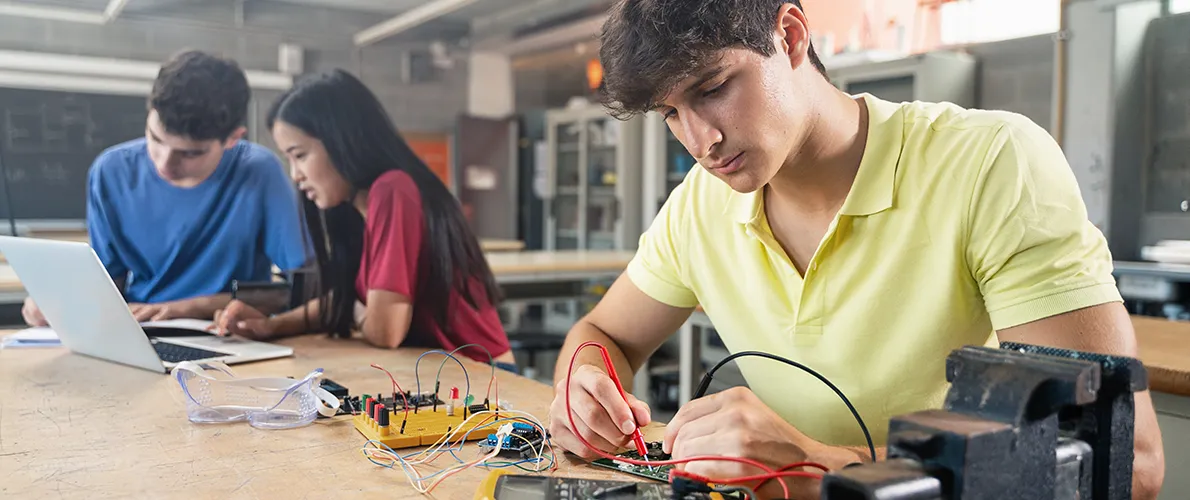Main Content
Electrical Engineering

Where innovation starts
Electrical and electronic engineers work at the forefront of practical technology, improving the devices and systems we use daily. These professionals innovate to meet society's communication, electronics, electromagnetics, and energy needs, from solar energy systems and electric vehicles to mobile phones and telecommunications.
Our graduates are ready for careers in an advanced technological world, bringing ideas into reality. By applying the principles of mathematics and science, engineers develop solutions to the world's biggest technical issues.
Accreditation
Our Bachelor of Science (BS) in Electrical Engineering program is accredited by the Engineering Accreditation Commission (EAC) of ABET, under the commission’s General Criteria and the Program Criteria for Electrical, Computer, Communications, Telecommunication(s), and Similarly Named Engineering Programs.Bachelor's Program
Our program is designed to meet the individual needs of our students. You’ll learn in small classroom settings with all the advantages a major research university offers. That means you’ll be in a classroom with about 30 students – so your lab time is learning time, not waiting-your-turn time.
Your technical electives will be taught by faculty members on topics that include power and energy systems, smart grids and cities, emerging electronic devices and sensors, robotics, mechatronics, AI and machine learning, telecommunications, image processing and imaging optics, biomedical devices, and more. You will work with faculty members on practical research in these areas.
Master’s in Electrical and Computer Engineering
A master's in electrical and computer engineering prepares our students for specialized and supervisory positions in various work environments. Graduates may perform research, develop new technologies, and design electrical, electronic, or computer components. Positions in the field all require advanced math and science skills.
Our programs are tailored to the individual student’s academic and professional goals. Graduates of the program enjoy excellent employment opportunities and are highly recruited worldwide in industry, federal agencies, and academia.
PhD in Electrical and Computer Engineering
Our Ph.D. in Electrical and Computer Engineering is a premier interdisciplinary program that equips students with a deep understanding of advanced topics such as energy systems, electronic devices and sensors, chip design, computer systems hardware or software, computer networks, cybersecurity, robotics, mechatronics, embedded control, wireless communications, optics and photonics, and biomedical systems and devices. Supported by cutting-edge facilities and collaborative research opportunities, this program prepares students to become leaders in the engineering field, ready to tackle challenges in electronics, electrical engineering, computer systems engineering, and biomedical engineering with innovative solutions.




